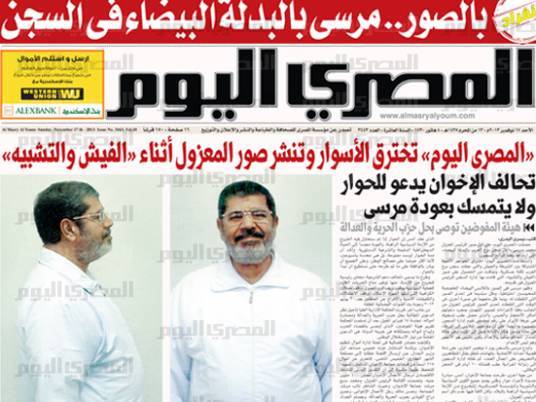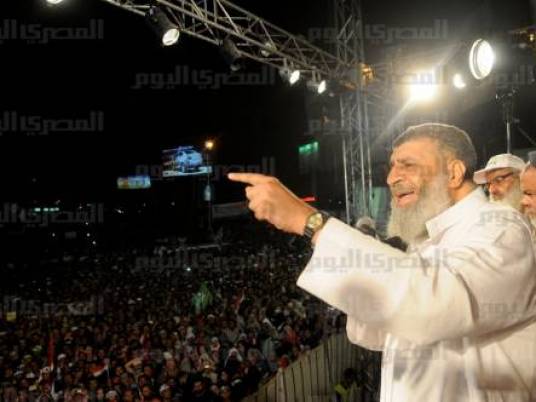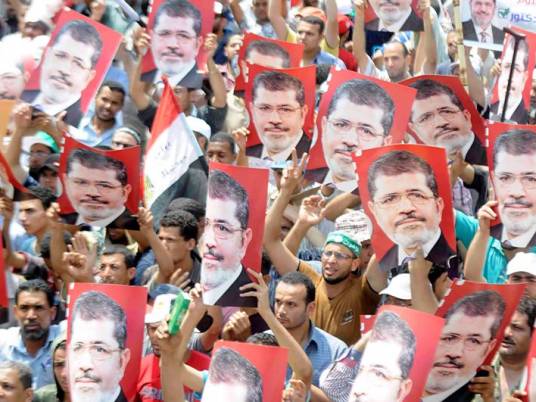Less than two weeks ago, President Mohamed Morsy issued a decree that made his decisions immune from judicial oversight. The decree also protected the Constituent Assembly from being disbanded by the judiciary.
In so doing, he set in motion a political polarization that is expected to only deepen in the coming weeks. With an impending referendum on a draft constitution that was rushed through in a matter of hours, that polarization is set to be with Egyptians for a very long time to come — but it does not have to be that way.
Outside observers wonder: What happened? Two years ago, Egyptians from all walks of life and backgrounds protested together in Tahrir Square to bring down then-President Hosni Mubarak. Over the past two weeks, many of those same Egyptians were in that same square, but the target of their protests is aimed at someone who represents a lot of other people who were also in that square over the 18 days. What happened?
Bringing down Hosni Mubarak, it seems, was the easy part. Building a national project that could tie society at large together, bridge over gaps and prevent widespread polarization — that is a lot harder. And really no one in Egyptian political leadership has developed such a project.
There could have been one. The same forces that called for people to descend to Tahrir to protest Morsy’s decree could have easily been partners in an effort to manifest his intention to cleanse the judicial system from regime holdouts. But they weren’t. Why?
It is, unfortunately, all too simple. The Muslim Brotherhood remembers decades of persecution and oppression within Egypt. The last two weeks has shown them only one thing: Opposition to the Brotherhood is at best misguided, and, at worst, is motivated by a desire to roll back the clock, annul presidential elections, install Mubarak’s prime minister Ahmed Shafiq as president, and persecute the Brotherhood again.
That sense of historical memory and concern overwhelms any impulse to build consensus — regrettably, at a time when Egypt’s transition needs it more than ever.
For the opponents of Morsy, the world looks somewhat different. Yes, there are plenty of people who oppose him because he is a member of the Islamist movement. Indeed, there are many in the square who were opposed or indifferent to the revolution, and supported Mubarak’s last prime minister, Ahmed Shafiq. Undeniably, there are elements of the “deep state” that have a pro-Mubarak agenda, so one needn’t think such elements exist only in Morsy’s imagination.
But it’s not all about reactionary anti-Islamism. Many within Egypt’s opposition not only voted for Morsy in the presidential election for the sake of the continuation of the revolution, but indeed, many of them defended the Brotherhood under Mubarak. Such people have little to do with “remnant figures of the former regime” — it is because of that staunch revolutionary attitude that such figures dared not enter, and others were cast out by the square.
For these revolutionaries, Morsy may very well do objectively good things without judicial oversight, but his powers in this regard are still beyond the norms of democratic process, and they are bound by principle to oppose those powers.
Again, it did not need to be like this. To carry out this decree, for example, Morsy might have developed a consensus with other political groups, but he did not have consensus from even within his own Cabinet.
Instead, he seems to have viewed the move as a necessary, almost existential move to defend himself, and in such a struggle, building consensus is hardly a priority.
The distrust and paranoia does not end with the decree, unfortunately. Morsy decided to push through a draft constitution in response to the protests, the idea being that once the draft was passed in a referendum, Morsy’s extra-presidential powers would be relinquished.
His opponents, however, only viewed the move as even more illegitimate than the decree. An assembly that was overwhelmingly Islamist has rushed through a document in a matter of hours to a referendum. That document, if it passes, will define Egypt’s political rules for a long time.
Again, it did not need to be like this. The Constituent Assembly could have been more representative. Morsy could have brought together other political groups, or even just the other former presidential candidates, other than Shafiq.
They could have formed an assembly that was far more representative of Egyptian society, together, and in so doing, created a process that all Egyptians had a stake in.
There is a way out of this. The Brotherhood might win a referendum on the constitution, and consider it a victory not only for the draft, but for Morsy’s decree and his presidency thus far. But such a victory would come at a cost, for the paranoia and distrust would not simply remain, but increase exponentially.
None of that is to the benefit of Egypt’s transition — it only makes it more precarious. There is another way. It does not have to be like this.
H.A. Hellyer is nonresident fellowat the Brookings Institution and Institution for Social Policy and Understanding.



